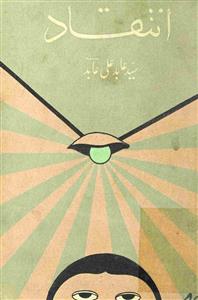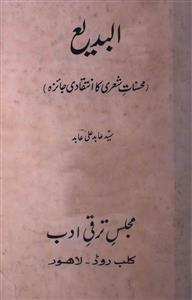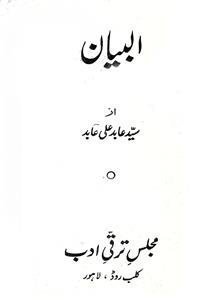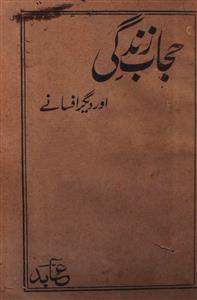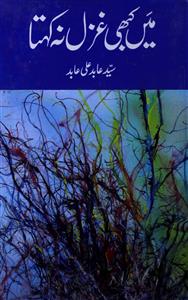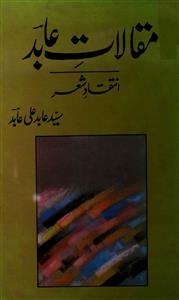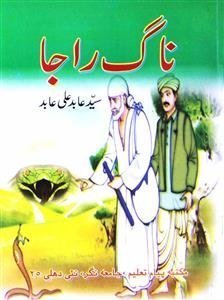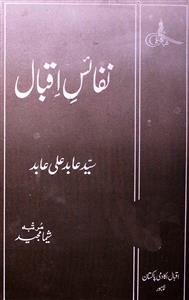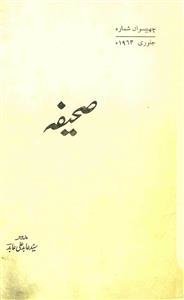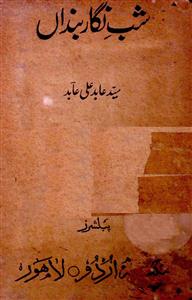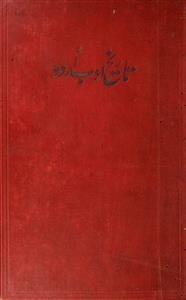 For any query/comment related to this ebook, please contact us at haidar.ali@rekhta.org
For any query/comment related to this ebook, please contact us at haidar.ali@rekhta.org
About The Book
اس کتاب میں اردو انتقاد سے متعلق مباحث ہیں ۔ مصنف نے انتقاد کے نشیب و فراز تاریخ اور دبیر و اقبال جیسے اہم اشخاص کے کلام میں علامتی اہمیت ، فنون لطیفہ، سخن فہمی پر بہترین مباحثہ کیا ہے ۔ نقاد کی ذمہ داری ہوتی ہے عبارتوں میں اشارات و کنایات رموز و علامات کا حسن و قبح تلاش کرنا مگر وقت کے ساتھ اردو انتقاد کا مزاج بدل گیا ہے اور اس کا معیار بھی ۔ اس دور میں عبارتوں میں حسن و قبح کے بجائے محض کمیاں تلاش کی جاتی ہیں اور ان کمیوں کو اچھالا جاتا ہے۔ کتاب ھٰذا میں ایسے انتقاد پر تنقید کی گئی ہے اور تنقید برائے تعمیر کے اصول کو اردو ادب کی زینت کہا ہے۔ کتاب کی ابتدا " انتقاد کا منصب" سے کرکے بتایا ہے کہ رموز و علامات کو دوسروں کی بات سمجھنے اور اپنی بات دوسروں کو سمجھانے کے لئے بہترین وسیلے کے طور پر استعمال کیا جاسکتا ہے۔
About The Author
Abid Ali Abid was born on 17 September, 1906 at Dera Ismail Khan. He graduated in law and joined bar but his literary inclination brought him to Lahore where he studied Persian for his M. A. degree and started teaching Persian at Dayal Singh College, Lahore.
Son of an army personnel, Abid Ali Abid belongs to the category of those critics who developed a larger perspective on social, cultural, and literary issues in their critical writings. With a keen understanding of Persian and English languages and their literatures, he developed a broader perspective in his critical writings. He thus created a discourse that was new to Urdu criticism.
Abid Ali Abid also wrote poetry but it was his criticism that earned him a place of distinction. His works include Usool-e-Inteqaad, Adab Ke Asloob, Shama, Yad-e-Baiza, Suhaag, Talmihaat-e-Iqbal, Tilasmaat, Main Kabhi Ghazal Na Kehta, Baresham Ood, and Inteqaad.
He died on 20 January, 1971 in Lahore.
 For any query/comment related to this ebook, please contact us at haidar.ali@rekhta.org
For any query/comment related to this ebook, please contact us at haidar.ali@rekhta.org
